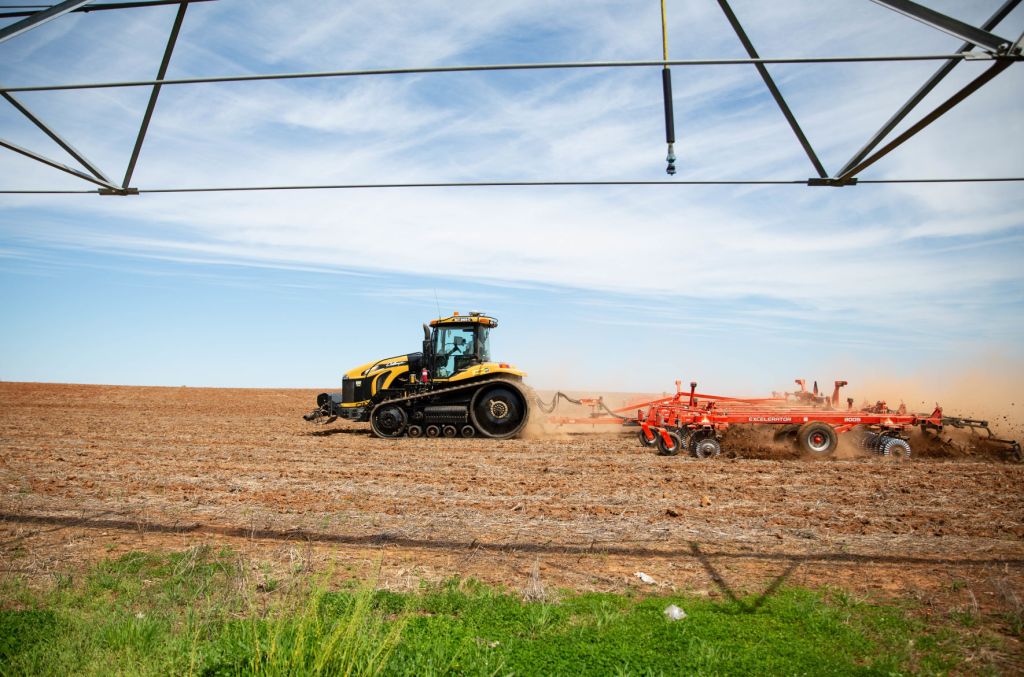‘Resilient’ local farmers plow ahead despite market woes
Published 7:15 am Monday, April 13, 2020

- Reed Hammonds disks the Hunt Farms field located on Three Springs Road before planting corn on Thursday, April 9, 2020. (Grace Ramey/photo@bgdailynews.com)
Social distancing was the least of Bill Ballance’s worries as he rode in an enclosed tractor cab last week while preparing his fields in northern Warren County for soybean planting.
But the veteran farmer, like nearly every other business owner, was feeling the impact of the coronavirus pandemic that has the nation’s economy in a stranglehold.
Trending
“It’s a challenge to get supplies, and we’ve seen slower delivery of fertilizer,” Ballance said.
And yet those supply chain problems are little more than a nuisance compared to a much bigger issue Ballance and other farmers are faced with while waiting for the pandemic to run its course.
Just as the stock market plummeted in inverse relation to the growing number of COVID-19 cases, prices for agricultural commodities have dropped from already-low levels.
Soybeans were trading at $8.63 per bushel Friday, down from $9.36 in October and from more than $12 as recently as 2014. Corn, meanwhile, was at $3.32 per bushel, a huge drop for a crop that was selling for $8 per bushel back in 2012.
It’s enough to make a farmer want to self-quarantine for a while, except that Ballance and others who grow crops and raise livestock for a living don’t have that luxury. It’s planting season, so they’re planting.
“Farming profits have been getting smaller and smaller,” said Ballance, who is putting out nearly 800 acres of corn and more than 1,600 acres of soybeans. “It has been a challenge. But it’s farming. You just keep going and find a way to make things work.”
Trending
The third generation of a family that has been farming Warren County land for more than 60 years, the 42-year-old Ballance has the perspective of history to help him get through this latest challenge.
“Everybody looks for that 2011 period” when commodity prices were high, he said. “Everybody was all smiles then.”
While he isn’t expecting a return to that kind of robust market, Ballance said there are reasons to be optimistic.
Early spring rains have helped growing conditions, he said, and the U.S.-China trade agreement announced late last year should boost market conditions.
“The market improved for four or five weeks after the trade stuff with China,” Ballance said.
Both Ballance and local agriculture specialist Mike Bullock believe the market boost from China should return once the pandemic is in the rear-view mirror.
“Farmers have a lot of things to work through right now,” said Bullock, who is with Southcentral Kentucky Community and Technical College. “The economy is a mess, and it’s going to take time to get over that, but farmers are resilient. They will survive. Their attitude is phenomenal.”
Bullock said most local farmers have moved away from dairy and tobacco, markets that were in free fall long before anyone ever heard of the coronavirus, but he expects markets for traditional crops like corn and soybeans as well as wheat, canola and emerging crops like hemp to make a comeback.
“It’s pretty much business as usual,” Bullock said. “They’re discouraged about prices now, but they know it’s going to come back.”
Andy Alford, an Edmonson County farmer and member of the Kentucky Soybean Association board of directors, isn’t overly concerned about the recent drop in prices.
“In a lot of years the prices for soybeans are lower during planting season,” Alford said. “In reality, we’re not going to be selling crops until the fall, so it’s easier for us to be optimistic for the future.”
Alford also sees rays of hope in unusual places, pointing to a dry growing season that could hurt the soybean crops in Brazil and Argentina and to the precipitous drop in gas prices brought about largely by the coronavirus outbreak.
“We’ve seen a savings on diesel fuel,” Alford said. “We hope this coronavirus will go away and markets will come back. We still have plenty of time. We’re optimistic.”






